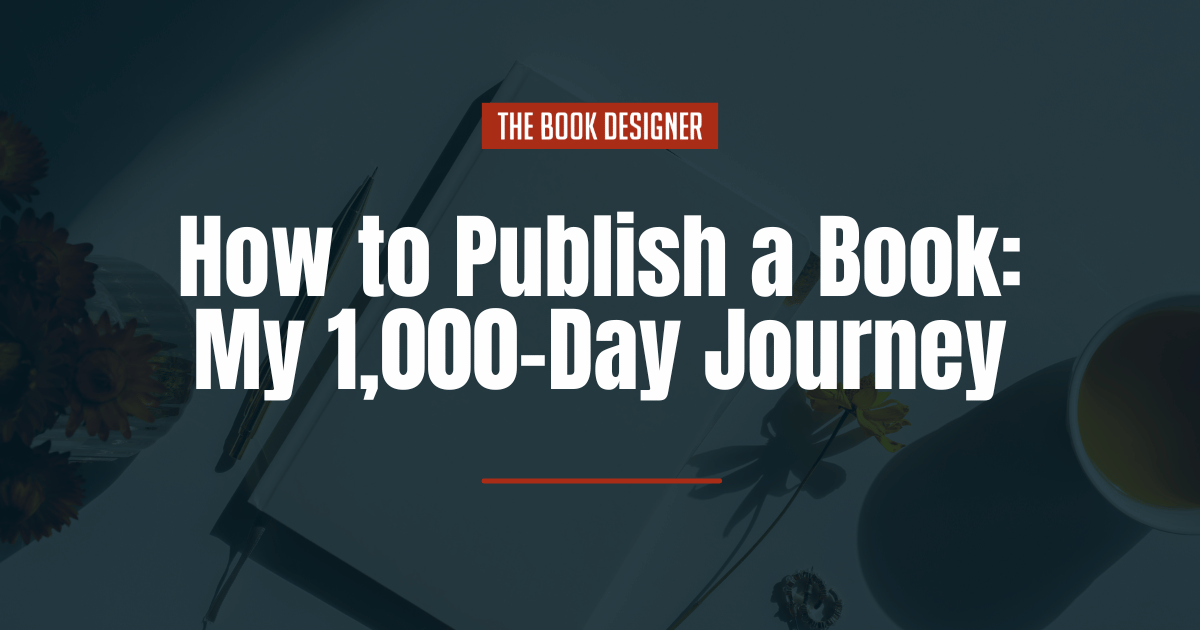In life, lots of things are relative.
What looks hard seems super-easy compared to something harder.
Writing is hard.
But it is easy when compared to what it takes to go from “writing” to “getting your writing done.”
If I’d known it would take 1,000 days for my first book to be published, I probably would have given up. I’m glad I didn’t.
Here’s how it happened.
This story took place between 1980-1983. We lived in a small town called Madikeri in the state of Karnataka in India.
The Hunger to Read
Like all kids my age, I was fascinated with stories. For me, it bordered on obsession.
It started with monthly Kannada language magazines for kids. We used to buy all four of them every single month. Sometimes, I would wait outside the house so that I could read them first—before my elder brother got his hands on them.
Slowly, my interest shifted to novels. My mom had a treasure chest of them.
The local library, of course, had a lot more. They lent two books per person.
From our home to the library was a 90-minute walk. I still remember the days I would walk to the library, borrow two books, and walk back reading one.
I was always confused and conflicted, because I would almost have finished one book by the time I got home, and had only one more book to read.
Without hesitation, I would turn around and walk all the way back to the library, quickly reading the other book. If I hadn’t finished the second book by the time I reached the library, I would stay there to complete it. Then I would borrow two more books, ensuring this time that they were thick enough, so I wouldn’t run out of reading material when I got back home.
I slowly upgraded to Enid Blyton, and then to Erle Stanley Gardner.
My parents were probably happy about my love of reading. More likely, since my grades were good, they didn’t bother much about this side of my life.
In this way, I’d read about 700 books by the time I was ten.
I used to play guessing games — guessing how the stories would evolve and how they would end. Sometimes I would win; mostly, I lost.
But the games themselves were fascinating, as I was trying to get a peek into the authors’ minds.
The Writing Journey Begins
One day, I had a “brilliant” idea. Why guess what happens in other novels?
Why not write my own?
I had already read hundreds of books in both Kannada and English.
I thought I could make up a plot, some characters and scenes, and stitch them all together.
That thought quickly turned into action. I started writing my novel—a spy thriller— in June 1981.
That I struggled to complete the novel would be an understatement. We didn’t have a typewriter nor did I know how to type, so I wrote by hand. I rewrote often, getting stuck with a character, not knowing how to further the plot, wondering when and how to finish the book.
But after eight months, I had a complete draft of 200 pages.
The (Naive) Dreams and the Reality
The next logical step was to publish the book.
I thought it would be a piece of cake; anybody who read it would lay down the red carpet for me.
It was a good book and deserved to be sold in bookstores.
If I tell you all the dreams I had about how fast I would see it on the shelves, you’d think I was totally crazy—and you’d be right.
I started pitching it to every publisher I knew. Most pitches were written on postage-paid letters. I kept track of each one.
I was waiting for multiple publishers to reach out to me, expecting to choose between their offers.
It didn’t take me long to realize that I wouldn’t be faced with the problem of choice.
Most pitches got no answer. Occasionally, I would get stock rejection letters. Then the rejections began coming more frequently.
For almost a year, there were only two outcomes: no response, or a stock rejection letter.
My reaction went from “shocked” at first, to “totally expecting it” by the end of the year.
I had to do something else.
A Ray of Hope
The next year, I started reaching out to some of my favorite authors for help.
I’d get their addresses from their books, or address my letters to their publishers.
Most went unanswered. To be fair, I don’t even know whether my letters reached the right people.
Then one day, there was a ray of hope.
One author, G. Prakash, responded, giving me some words of advice on a postcard.
I was delighted. Actually, I was ecstatic.
After all I had gone through, this was a breakthrough.
Meanwhile, I had not stopped writing. I was on novel #3 by this time. My theory was that once my first book was published, there would be a demand for more novels, and I wanted to be ready. Why waste time, right?
Over the next few months, I built a snail mail relationship with Prakash. He was wonderful and patient, responding promptly to all my questions via postcard.
I decided it was time to pay him a visit. I wrote to him, requesting an appointment, asking him to let me know if he wouldn’t be available on the day.
I didn’t hear back from him, so I convinced my parents to allow me to make a day-trip to the city of Mysore.
The Day-Trip that Turned into a Two-Day Trip
I reached Mysore early in the morning, excited at the prospect of meeting my favorite author, who had been my guiding force for the past few months.
I was in for a surprise. Prakash was not there.
In fact, he didn’t even live there! He lived in a town called Hunsur, and used his in-laws’ address for correspondence. I learnt this from his in-laws.
But all was not lost.
As luck would have it, Prakash would be visiting them that afternoon. They asked me to come back at 2.30pm.
I spent the intervening three hours roaming around.
I went back at exactly 2.30pm. Prakash had not yet arrived. He might be on a later bus, his in-laws said, and asked me to come back in an hour.
I went back at 3.30pm. Same answer.
I went back at 4.30pm. Same answer.
I went back again at 5.30pm. Same answer.
By this time I was getting a bit anxious, as I needed to get to the station in time to catch the last bus home to Madikeri.
When I went back at 6.30pm, Prakash had still not arrived. But they had heard from him. He was on election duty and wouldn’t be visiting them that weekend.
I tried my best to not show my disappointment, but my eyes filled with tears. Prakash’s mother-in-law noticed. She asked me my name, and whether I’d eaten anything since morning. I said, No. They asked me to come in and served me food. I tried to explain, but they asked me to eat first; we could talk later.
After an early dinner, they heard my story.
I was carrying my unpublished manuscript. Prakash’s father-in-law actually read the entire manuscript. This was novel #4, so I had better writing skills than I did when I wrote novel #1. He liked it.
They decided to help me reach Hunsur so I could actually meet Prakash, and asked me to stay the night. We called my parents to tell them of my changed plans. It took some explaining, but eventually, they were convinced.
That night, we talked more about the book and my journey thus far.
The next morning, they both saw me off at the bus station.
At Hunsur, I didn’t have any trouble finding Prakash’s home. There was no one there, so I waited outside.
Two hours later, Prakash returned from election duty, surprised to see me at his doorstep, not knowing who I was. He hadn’t read my most recent letter, and it took him a while to understand that I was one of the fans he corresponded with.
But he was nice.
We spent the next few hours together. I narrated my story all over again. He didn’t read the manuscript right then, but promised to do so that evening. If he liked it, he would endorse the book and also put in a good word about it to one of his publisher friends.
For the first time, there was real hope.
I went back home, eagerly waiting to hear from him.
How to Publish a Book
True to his word, Prakash wrote to me the following month.
He liked the book, and had talked about it to his publisher friend Natraj. Natraj from Chethana Book House had promised to look at it, and had asked me to meet him in Mysore.
There was no guarantee, but at least I was going to meet a publisher in person.
So I was on a bus to Mysore once more.
Nataraj Chowdhury was a nice person. He asked me to wait as he was still reading the manuscript. I stood some distance away, waiting for him to finish it.
I didn’t know whether his answer would be “Yes” or “No,” so the anxiety was building up.
After about thirty minutes, he looked up and realized that I was still standing.
He asked me one question: “How much do you want for this?”
This was a question I wasn’t prepared for. Again, I had tears in my eyes. But these were different tears.
I finally had a deal. My first book Mr. X Killer was published in 1983, when I was thirteen years old.
Lessons Learned

-
Anything meaningful is hard
My first book was published when I was thirteen years old, but six of my books were published before I was seventeen. The first time was hard, but because I got something done the first time, there was a second time, and a third time.
-
Tenacity is invaluable
I didn’t know what tenacity meant when I was trying to get my first book published. But I was immersed in it 100%. The fact is, I didn’t know when to give up. When you get more than 100 rejections, you become immune to them, and it helps you to keep moving forward.
-
There is so much to be grateful for
I still remember the two days I spent with Prakash’s in-laws and the day I spent with Prakash. Those were some of the defining moments of my life. Today, I have published fourteen books and over 1900 articles on my blog. But the journey would not have begun without Prakash and Nataraj believing in me and giving me a chance. It was a leap of faith for them, and it was the biggest breakthrough of my life.
There is so much to be grateful for in life.
Whether or not you’ve been published, I’d like to hear your story. Share it in the comments below to bolster the writing spirit in each of us!


















